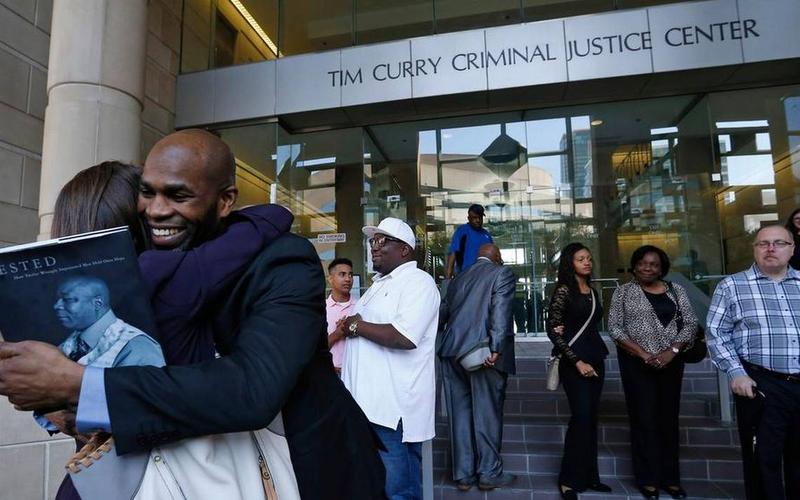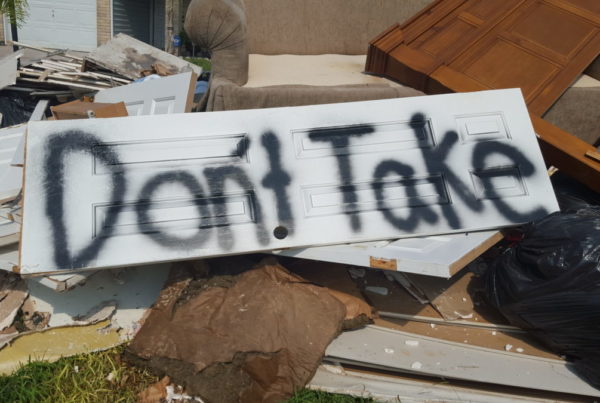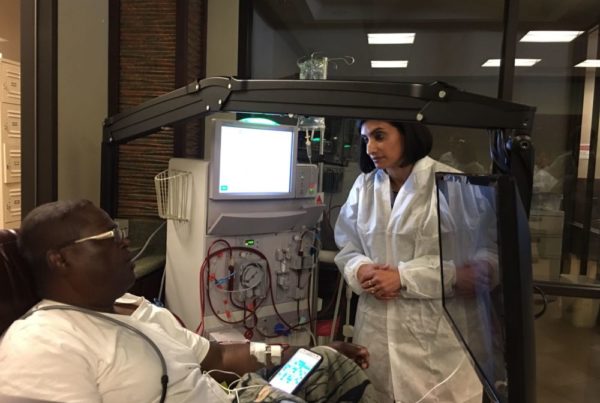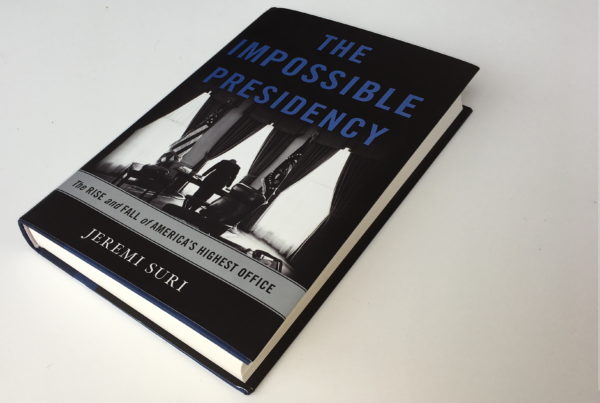From KERA:
John Nolley always insisted he didn’t kill his friend. He spent nearly 19 years locked up for the gruesome murder. Then, a judge released him from prison, citing evidence that undermined the jailhouse informant who testified against him – evidence never given to his lawyers during the trial.
The jailhouse snitch is a stock character in TV legal dramas; inmates prosecutors call in to help make their case, usually in exchange for a lighter sentence or some kind of benefit. Experts say they’re also key players in a lot of real-life cases where the system gets it wrong and people get sent to prison for crimes they didn’t commit.
“Prison is terrible and these people don’t want to go back,” says Nina Morrison, a lawyer with the Innocence Project, who spent more than a decade working on John Nolley’s case. “But a lot of jurors, who don’t have experience with the justice system, don’t realize the way those incentives work.”
Back in 2005, the Center on Wrongful Convictions reported that false testimony from jailhouse informants was the single biggest reason for death row exonerations.
This year, lawmakers in Austin took a major step to regulate the use of jailhouse informants. In Tarrant County, John Nolley’s case was the impetus for a dramatic change in policy in 2016.
“If you don’t have the right guy, then you’ve got a perfect crime, and we don’t want that,” says Dawn Boswell, who heads the conviction integrity unit in the Tarrant County District Attorney’s Office and worked to uncover the evidence that eventually freed John Nolley.
No forensic evidence
On May 17, 2016, Nolley was back in the same Fort Worth courthouse where he was convicted. This time, it was to be released. When he was sentenced, Nolley had two young boys, just 1 and 4 years old. On the day he was freed, he hugged two grown sons and his tiny granddaughters.
“It’s just overwhelming,” Nolley told reporters. “I mean, too many emotions just to focus and channel in on one, you know?”
On December 14, 1996, Nolley’s friend Sharon McLane was discovered dead in her Bedford apartment. She’d been stabbed 57 times and hadn’t been heard from in several days.
Nolley was charged based largely on the fact that he’d visited her in the days before her death, though he’d initially told investigators that he hadn’t, according to Morrison. It was entirely circumstantial, she said.
“There was no forensic evidence in the crime. He hadn’t confessed to the crime to anyone, and there was no evidence of motive,” Morrison says. “He and the victim were friends. They had spent Thanksgiving together with their families, no history of any violence or animosity between them.”
‘A complete and total lie’
What prosecutors did have – what proved really effective — was a jailhouse informant who said Nolley told him he killed McLane when the two were in jail together before the trial.
At the time of the trial, the informant faced decades in prison for stealing farm equipment, but he ended up with a plea deal and no jail time. On the stand, he told jurors he wasn’t trading his testimony for leniency.
“When he got up and told Nolley’s jury and looked them in the eye and said, ‘I’ve never snitched on anyone; I’ve never offered to,’ that was a complete and total lie,” Morrison says.
Nolley spent more than 15 years in prison before that lie came to light. That’s shortly after Morrison had started working with the Tarrant County District Attorney Sharen Wilson’s office, which found new evidence that raised major questions about Nolley’s original case.
“When you look at the informant’s testimony and compare it to what we now know from the state’s own files what was actually happening behind the scenes, it’s a breathtaking contrast,” Morrison says.
According to a recent court filing, the newly uncovered records showed the informant had spent a year and a half lobbying other prosecutors in the DA’s office to testify against other defendants in exchange for a lighter sentence.
It was information Nolley’s lawyers never saw during his trial. The prosecutor who tried Nolley says he was unaware of it. Still, the law makes it clear that failure to disclose evidence that calls into doubt a witnesses’ credibility is a violation of due process, regardless of whether or not it was intentional.
“It was just earth shattering,” Morrison said. “And I knew then that John Nolley had a very good shot at getting his freedom at last.”
Keeping the facts straight
Morrison says the Tarrant County District Attorney’s office was exceptionally committed to setting things right. Beyond that, she says the policy they put forward to prevent the same thing that happened to Nolley from happening to other people is practically unheard of.
When Tarrant County enacted a policy to track, regulate and rein in the use of jailhouse informants last year, it was only the second prosecutor’s office in the U.S. to do so.
A key facet of the policy is a central database of jailhouse informants. Dawn Boswell helped craft the policy, and says tracking the use of incentivized witnesses is important. In big offices like hers, one prosecutor may not know that other prosecutors in the same office are relying on the same jailhouse informant, or that an informant who’d been given a deal in exchange for testimony was the same person back again offering to testify in exchange for another deal.
“You can’t be transparent about things you don’t know about, so we have to track that information to make sure that we comply with our ethical and legal obligations of disclosure,” she says.
The policy also gives line prosecutors a list of questions to ask when considering whether to use an informant or not and directs prosecutors to disclose any deal informants get for testifying.
“We say we don’t want any ‘wink-wink, nod-nod deals,’” Boswell says. “It all has to be up there so that all the relevant parties in the system have an opportunity to consider those factors, and to refute them.”
‘They’re snitches’
Around the same time the DA’s office in Tarrant County was re-thinking its jailhouse informants policy, a commission in Austin was also studying wrongful convictions.
Amarillo Rep. John Smithee says they looked at more than 200 cases where innocent people were sent to Texas prisons. A handful of issues that came up again and again.
“It was amazing and surprising to me how easy it was to identify where the system went wrong on most of these cases,” he says.
Jailhouse informants were a major one, Smithee said. But the list also included sloppy eyewitness identification procedures, coerced confessions and faulty field drug tests. When they wrote legislation to fix those problems, the commission included regulations on jailhouse informants that, in many ways, resembled those that Tarrant County took.
The justice system is always going to be fallible, Smithee said, because the people running it are fallible. But he says lawmakers have a moral obligation to look at systemic errors and try to make the system more resistant to errors.
“In many of these cases where the error has been exposed at some point down later on down the line, once you look back you see in a lot of cases is a fairly lazy defense attorney, an overzealous prosecutor, or a judge who seems like they just didn’t care all that much about whether the system worked or not,” Smithee said. “And it’s embarrassing, or it should be embarrassing.”
During a House committee hearing, House Bill 34 — the omnibus reform bill Smithee sponsored — drew praise from Michael Morton, who spent 25 years in prison before DNA evidence cleared him.
“They’re not informants; they’re snitches. I lived with these guys. I used to sleep next to them. I know these guys” he said. “Jailhouse snitches are a type of expert witness. There’s no reason we shouldn’t know their background, their history. Maybe not all the details but how many times they’ve testified in a situation like this.”
The law passed with bipartisan support and became law earlier this month. It includes a requirement that prosecutors statewide track informants, and lets lawyers tell juries about their criminal history.
Not exonerated, but still free
As for John Nolley, the man whose case ended up changing the policy at the Tarrant County DA’s office, he hasn’t been exonerated yet. Right now, he’s out on bond while a state court considers vacating his conviction.
Meanwhile, prosecutors are using new technology to re-test the forensic evidence from the murder. They’re working with the Bedford Police Department, interviewing witnesses and chasing down any leads they can find to possibly identify McLane’s killer.
Nolley’s lawyer, Nina Morrison, says he appreciates every day he’s free.
“It’s always a challenge to come out of prison after losing nearly two decades of your life for a crime you didn’t commit, but he’s done an amazing job of rebuilding his life one step at a time,” Morrison says.
He’s working as a maintenance man for a real estate development company, is active in his church, spends a lot of time with his family, Morrison says. And just this spring, Nolley got married to a childhood friend.















